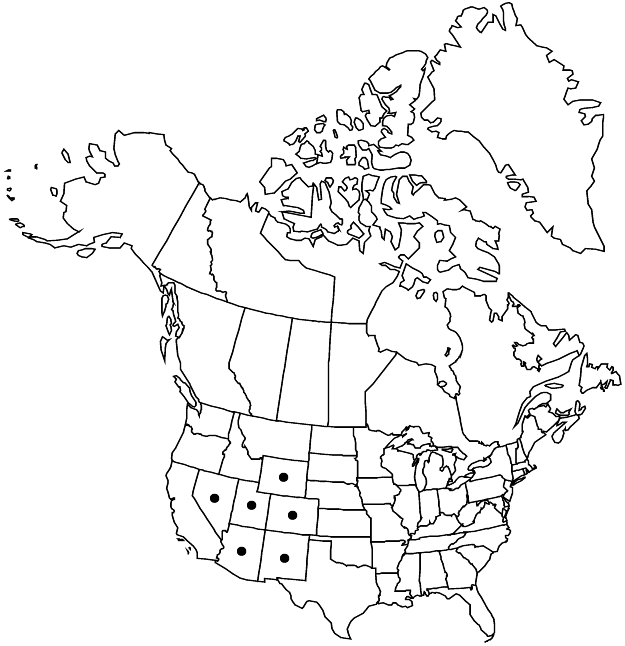Minuartia macrantha
Amer. Midl. Naturalist 7: 132. 1921.
Plants perennial, cespitose or mat-forming. Taproots occasionally filiform or often woody, somewhat thickened to moderately stout. Stems erect to procumbent, green, 2–15 cm, glabrous, internodes of all stems 0.3–1 (–2) times as long as leaves. Leaves moderately to tightly overlapping (proximal cauline), variably spaced, progressively more so distally (distal cauline), connate proximally, with loose, scarious sheath 0.3–0.8 mm; blade straight to slightly outcurved, green, flat, to 3-angled distally, 1–3-veined, midvein more prominent than 2 lateral-veins, subulate to linear, 5–10 × 0.5–1.2 mm, flexuous, margins not thickened, scarious, smooth, apex green, rounded, thickened and navicular, shiny, glabrous; axillary leaves present among proximal cauline leaves. Inflorescences solitary flowers, terminal, or 2–5 (–8) -flowered, open cymes; bracts broadly subulate, herbaceous or scarious-margined proximally. Pedicles 0.2–1.5 cm, glabrous. Flowers: hypanthium disc-shaped; sepals strongly 3-veined, ovate to lanceolate (herbaceous portion lanceolate), 3.5–5 mm, to 5.5 mm in fruit, apex green or purple in part, sharply acute to acuminate, not hooded, glabrous; petals oblong to obovate, 0.7–1.8 times as long as sepals, apex rounded to blunt, entire. Capsules on stipe ca. 0.2 mm, broadly ovoid, 3–3.8 mm, shorter than sepals. Seeds black, suborbiculate with radicle prolonged to rounded beak, somewhat compressed, 0.7–1 mm, tuberculate; tubercles low, rounded.
Phenology: Flowering spring–summer.
Habitat: Rocky, often limestone, areas, spruce-fir forests, alpine lake shores, tundra
Elevation: 2100-3700 m
Distribution

Ariz., Colo., Nev., N.Mex., Utah, Wyo.
Discussion
B. Maguire (1958) segregated Minuartia filiorum (as Arenaria filiorum) from M. macrantha on the basis of habit (annual or at most a weak perennial), 3–7 flowers per inflorescence, and petals shorter than the sepals. Some populations may be distinguished using those features; the number of flowers per inflorescence is more variable than Maguire noted, and the seeds of the plants are identical with those of typical M. macrantha. We concur with W. A. Weber’s herbarium annotations that M. filiorum and M. macrantha are conspecific.
Selected References
None.